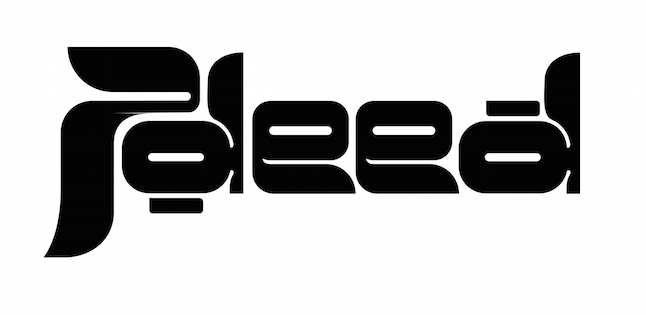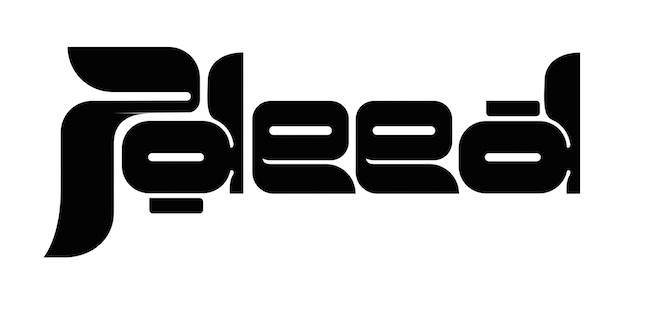
Travel
Arab women as Arab legacy
This (past) Valentine’s Day marked Siham Chehir’s third decade since arriving at London Heathrow Airport in England. Other than the black jeans and matching shoes she had on, she does not remember much from her journey–which is unusual for her. I’m usually good at remembering the details of my day.
Words/Tracy Jawad
A native to Algeria, born in Guelma and raised in Oran, Siham comes from a family that championed her education and her free will. Her father was an open man who let her have a say in who she married and what she did within the constraints of femininity and tradition. In a world where your father was in charge of your mother and you, and if not him, then your brother, and if not your brother, then your uncle, this was rare. Her mother, however, was more religious, and thus, more conservative with her upbringing. But she followed his lead, as any Arab woman would.
Siham was only 20 when young Algerian men left for Afghanistan to fight the Soviet Union. Their return brought with them the dawn of Islamism in the country, a prelude to its Civil War only a decade later. In retrospect, there was something unsettling about it and I didn’t accept it. Despite her activism with the student union, fighting on the frontlines for her rights, Siham was still expected to get married. At 21, suitors asked her father for her hand in marriage, and though her father asked her permission first, marriage was still obligatory. I let you go to work, I let you be free. But it’s for you to find a husband. If you don’t want to get married, we need to find a solution.
But Siham tells me she had ideas in her head that things should not be the way they are. And nobody could stop me from thinking that. It wasn’t the religious customs that set her off, it was the expectation–the duty–of women to commit to caring for their husbands and their children. I wasn’t going to be the woman that waited for somebody to ask for my hand. During her time as a teacher, one of the few professions encouraged for women because it involved childcare, she met the man that would go onto be the man she left Algeria with before the war.
Leaving was not just Siham’s ticket out of her city and away from an arranged marriage, it was also something for her to do with somebody she loved. And we could look out for each other. Once she arrived, she worked multiple jobs: cleaning up cinemas, sorting carrots in a factory and supermarkets, and as a translator for the NHS with a focus on HIV/AIDS patients–she laughs as she tells me that nobody she works with now would believe that these were the jobs she used to do. I could be whoever I wanted to be in England. I wasn’t two people in one body anymore.
For Siham, who moved entirely on her own at 26 to a country she’d visited just once as a child, the differences between English and Algerian culture were made more prominent once she became a mother. Not having her aunts or uncles with her after the birth of her first daughter, Amal–Arabic for hope–made her worry about how she was going to raise her children. Women in the Arab world must always consider the consequences of their behavior, to beautify their looks, to manage their thoughts and control their urges. We are dictated by what people deem acceptable and we must fit into that. Thus, Arab women are the epicenter of Arab identity: culture and heritage are not only absorbed by them, they are also carried through them.
Raising your daughter in an alien context worries most families who migrate or flee to the West. A ‘free’ Arab woman is often described as felteneh, or “loose,” analogous to an animal escaped from their cage, to shame or deter others from exercising their independence or free will. Young women are thus held to unattainable standards that patriarchal societies must uphold to weaken their resolve and undermine their strength.
Siham recognized this and worried for her own daughter, knowing that her decision to leave her family meant that it was up to her to do everything she could to pass on the traditions and beliefs that were important to her as an Algerian. It was staggering to her at first, being around carefree English women who never cared for anybody’s opinions of them. I was intrigued by how you could get to that level of confidence. She tells me that she realizes now that we all did things to fit in, and that her own performance of gender and tradition is no different than her English neighbors. Human beings want to be accepted by people, friends, neighbors. We all want that approval.
Who we are is not expunged by immigration. When circumstance tears us away from our homes, our families, and our routines, all that’s left for us is the memory of the smells and the colors. We cling onto the things that made us who we were in another life. It was almost instinctive. You want to survive as a person, as an identity. I preserved what I knew and I brought it with me. Nevertheless, she was glad that her daughter would enjoy the freedoms she wasn’t entitled to back home. Nobody would or could control her. And sure enough, Amal went on to be a revolutionary in her own right, hanging photos of Che Guevara on her bedroom walls with a copy of Fanon’s Wretched of the Earth lying on her bedside table.
But there are times when I struggle with my kids’ outlook. Siham jokes about her children’s taste for baked beans–a staple of British cuisine–wondering where it is that they picked up the taste for its sweetness. I’ve known beans to be cooked with spices, cumin, chili pepper, oregano. There are still things that she has to think through rationally whilst they come naturally for her children, be it her son’s reluctance to label his relationships or her daughter’s late nights out, never worrying about walking home alone at night or what the neighbors will think of her. Nevertheless, Siham still adds baked beans to her shopping list. After 30 years in the UK, she learned to reconcile her own world with her new one, accepting that this new one would be the only world her kids will ever know. I do admire them for being so open.
Despite having lived in Britain for longer than in Oran, Siham very much still feels like she belongs to the Arab world. I’m not even sure if I’m Arab or not but I identify with its world. Its culture, its style, the way we are. Throughout the conversation, she struggles to articulate what it is that is distinctly Arab about her lifestyle and the culture she’s both inherited and chosen. She hesitantly concludes that pride is the singular characteristic shared amongst Arabs around the world which distinguishes their way of life.
But England is still her home. People like me are lucky. We get the best of both worlds. We get to choose from the good and the bad. As for her children, they are visibly proud of their Algerian heritage against the odds of Islamophobia and the hostile immigration environment ravaging England. Siham believes the duality in their identities has made them more confident in themselves. In 2010, the family hung up both the English and Algerian flags when the two countries played against each other at the World Cup. Whoever wins, we will be happy.
“I’m not even sure if I’m Arab or not but I identify with its world. Its culture, its style, the way we are.”
Amal, the oldest, is adamant that she wants an Algerian wedding, with the copious amount of gold jewelry, the traditional dress, and the extravagant makeup. Siham’s son, Yassin, tells her that when he’s sat in his office, he thinks about how he’s just this little Algerian boy, sat in one of the world’s biggest investment banks, all thanks to his mother. Despite the breakdown of her marriage as a result of her husband’s rejection of her openness and her role as the family’s breadwinner, Siham’s faith in her family unit has provided her, and her children the space to navigate who they are and what they want to be. I suffered tremendously and it affected me to my core. But I would tell my husband that I was a sphinx, the more you burn me the more times I’ll come alive.
Now 57, Siham leads a staff of more than 40 teachers and 30 children at a school for kids with special needs in East London. During her time as an interpreter for HIV/AIDS patients at the NHS, she was recommended by her supervisor for a speech therapy course that ultimately lead her to specialize in the behavior of autistic children and the teaching strategies that they responded to best. I fell madly in love with the course, especially the neurology and cognitive side. She honors her successful career to her father, who pushed her to be the best that she could be, but she thanks her children for being the rope that always brought her back down to Earth–her guidance. Her why. I wanted to be the best person I could be for them.
She has done all of this on her own. Her failures, all of which she is proud of, have only served as a point of reference about herself, about who she is and what she is capable of. Siham set out to live her life in the way she believed was right, without taking the luxury of stopping, even for a moment, to reflect on all she has achieved so far. She must keep going if she wants her life to be just like she’d imagined it all those years ago as a young girl in Oran, refusing to contort herself for a mould fashioned by others.
Arabs, Muslim or not, do not bend. Maybe we can only talk about the people we know, but I believe Arab women embody this the most. It’s how we carry ourselves, it’s indescribable. It’s never been about religion or language. It’s about who we think we are.
And who we think we are is comprised of the wars where these women have loved, lost, survived, and rebuilt; the personal battles and obstacles they’ve overcome. Stretching from Algiers to Damascus, the brutal displacement inflicted upon Arab women as migrants and refugees is also the most devastating fixture of their identity. Across the Arabic-speaking world, our distinct dialects and histories often intersect, if only momentarily, creating a web of collective joy and mutual suffering. There can be no peace when those you love are always at the brink of war, but life must go on.
“Human beings want to be accepted by people, friends, neighbors. We all want that approval.”
There is no consensus on what geographical parameters delimit Arab identity, let alone an inventory of shared values and traditions that bind us together across time and space. It’s an identity that is either compromised or amplified, depending on infinite variables. It’s an identity carved out for us by way of tradition, religion, or cultural lines drawn by journalists and political scientists–none of whom hail from the region. Arabs, particularly women, are thought of as unmalleable and static: trapped in images of carnage and repression, victimhood and death, tradition and extremism. These images are always framed by the men behind and in front of the camera.
Yet it is Arab women that hold the answers to the questions we ask ourselves. I am in awe of Arab women. Their capacity to reinvent themselves and accommodate their lives to whatever has been thrown their way is what places them at the forefront of our culture. Their stories can be told over and over again, by different women in different places, but the conclusion remains the same: Arab women stitch what has been unraveled.
If we are to understand Arab identity, we must turn to the women who have carried its legacy and its customs on their backs as they marched on through war and disintegration. This is an ode to Arab women: the pulse of our culture, the rhythm of our music, and the only constant in the minefields of wounds and scars that comprise the patchwork that is the Arab experience.
Siham ends the conversation with something a Moroccan colleague once told her: I don’t know if it’s God, if you believe in God then it could be God; if you believe in nature, it could be nature. But there’s a look in an Arab woman’s eyes that runs as deep as the ocean.
Initially published in JDEED Issue 6, The Identity Issue now available in bookstores across Lebanon







0 comments